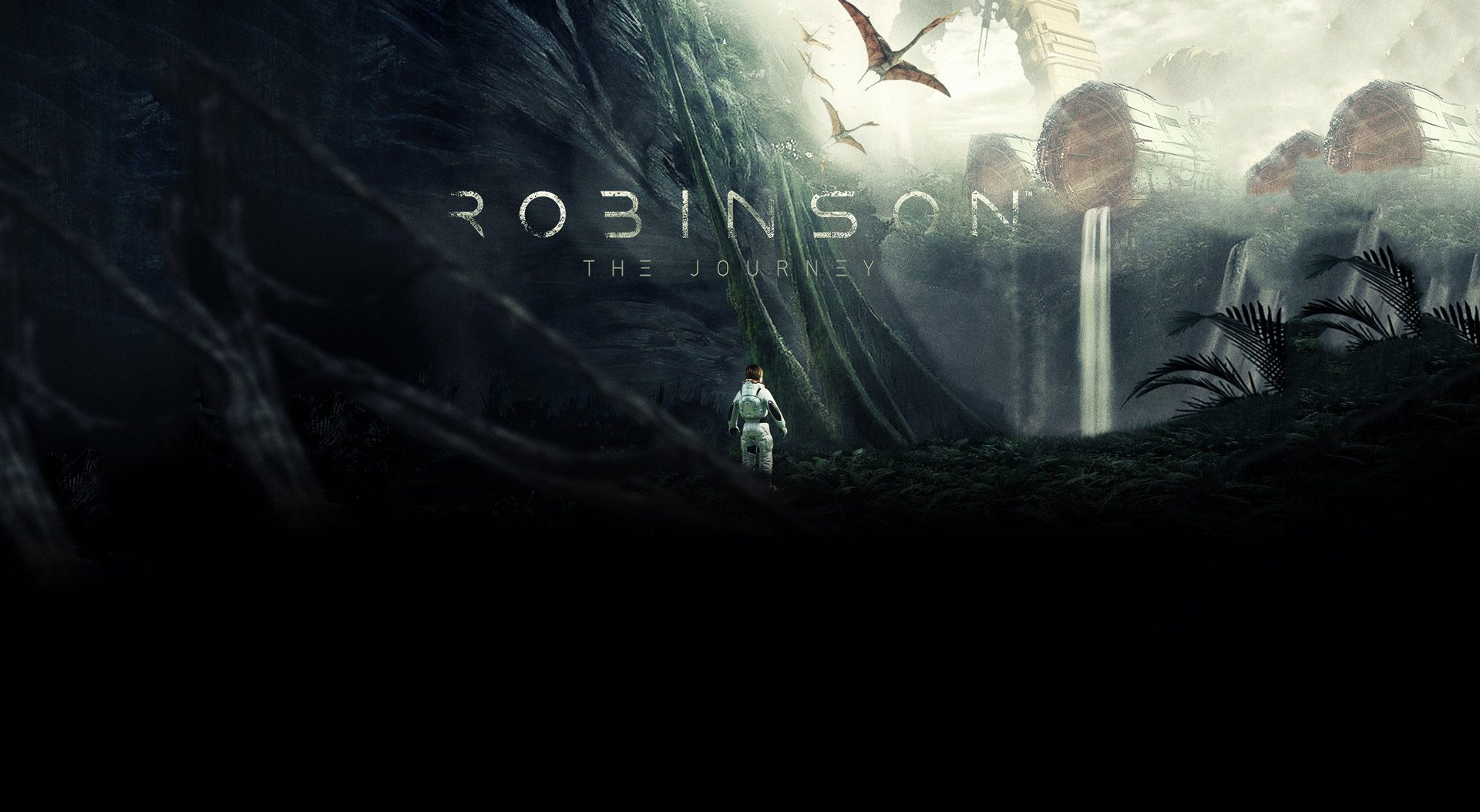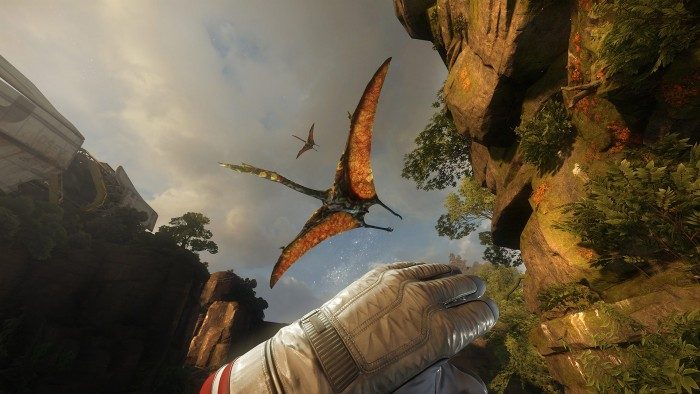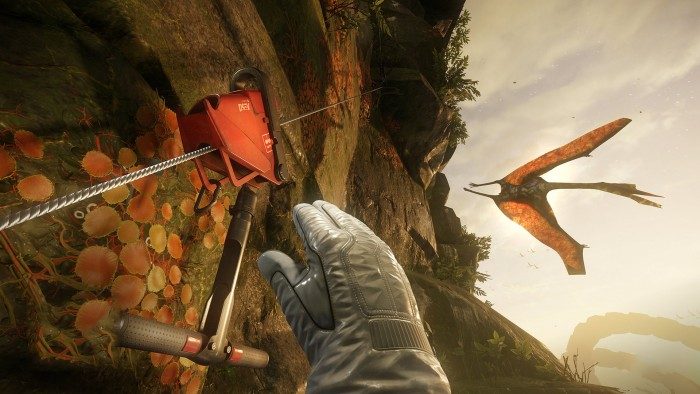Crytek has made leaps and bounds in the area of VR with only a few months between them and the reveal of official VR support at GDC back in March, a feat that was communicated via their dinosaur-themed tech demo using the Oculus Crescent Bay prototype. I sat down with Executive Producer Elijah Freeman at this week’s Gamescom 2015 for more info on the team’s latest developments with virtual reality.
Sitting down with Freeman, Executive Producer at Crytek, after having tried out Back to Dinosaur Island 2, the same prototype we saw at E3 last month, I wanted to learn more about how the demo related to the company’s upcoming made-for-VR title Robinson: The Journey.
Freeman told me specifically that “this is a demo, and it’s independent of Robinson. Obviously we take all demos that we build as inspiration for what we’re building.” He later remarked that although it’s still too early to be talking about Robinson in specific terms, like the narratives of a crashed ship (visible in the demo) and a boy landing on a verdant tropical planet (also visible in the demo), he admitted that Robinson: The Journey rekindled some of the joy he had at the beginning of his 25+ year career that’s spanned companies like EA, CCP Games, and now Crytek.
See Also: Crytek’s 50 Person VR Dev Team Can Only Mean One Thing
“…this is the one IP that in my career is likely to show the most promise. It just opens my imagination as a designer and game developer. It makes me feel childlike…” he said.
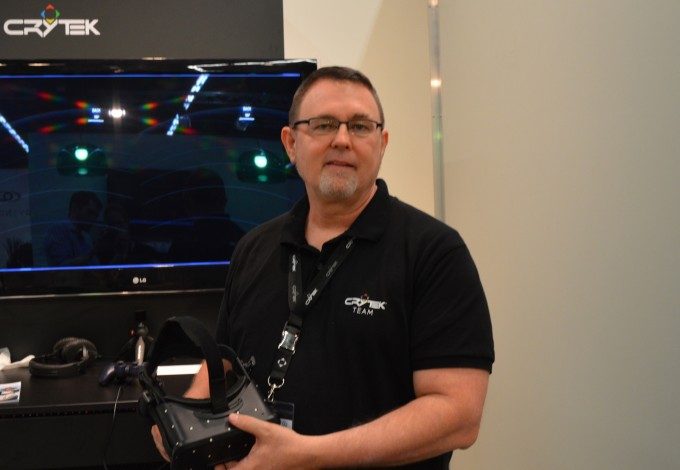
In a few broad strokes, Freeman sketched his understanding of the future of VR for the studio, and how virtual reality had not only found a clear home within Crytek, but also the company’s graphical engine which has integrated VR support since GDC in March.
“We’re a first person company. This is our heritage. And we’ve been doing stereoscopic rendering since Crysis 2, so this is a natural progression for us.”
“Being able to achieve the graphical fidelity that we have, we wanted to test a lot of [the graphical] boundaries with CryEngine. CryEngine is well know for its rendering capabilities, and [the demo] was an extremely good piece of technology, so that’s why we’ve spent so much effort on the first person experience.”
When asked if Crytek was intending on building a de facto graphical VR benchmark with their current project, much like the Crysis series had done for PC gamers, Freeman told me about an overarching philosophy that they’ll be taking into the future of VR at the studio.
“For Crytek—in general—we always push the envelope for the best game [and] online gaming experience. From our technology we push for this. From our game development we push for this. Every aspect of how Crytek functions drives for building the top level experience we can. The answer would be yes, we are always trying to push the envelope.”
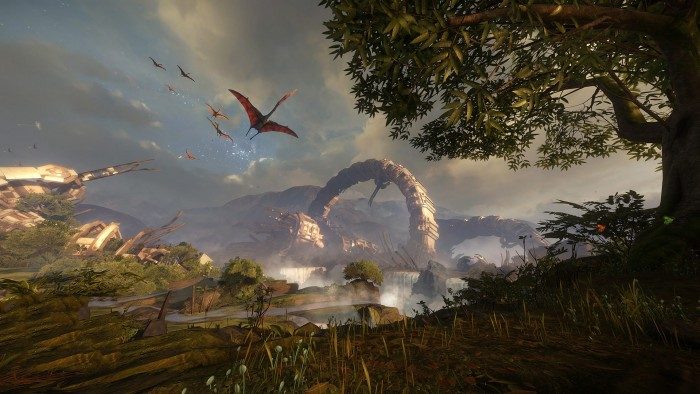
Beyond aspiring to be the graphical bar setter for VR, Crytek has actually teamed up with benchmarking company Basemark to create an actual VR benchmark.
Room-scale tracking volumes and hand controllers like Oculus Touch are all on Crytek’s prototype spectrum, Freeman told me. A good thing too, because some of the interactions I had in Back to Dinosaur Island 2 were screaming for motion controller input, a job that was instead done by an Xbox controller.
“Whatever is new we want to investigate it and make sure we understand it. We have a partnership with Oculus and we enjoy that partnership and its been great, however we would never limit ourselves, as we want to support a lot of new tech,” said Freeman. “In general, as a developer, I love anything like that that comes along. We’re always thinking about what builds the best experience. I can only say we’re investigating all tech, however I would say that it feels right for the controllers…”
“… we’re comfortable in almost any space at this point in time due to a lot of the prototyping that we’ve done. We showed [the demo] at E3, but we’ve gone a lot further and with many more prototypes. And every step we achieve, we integrate it.”
So far as we know, Crytek is hard at work on Robinson. Beyond the glimpses we’ve seen from their VR prototypes however, the game is still largely a mystery. Our eye is set closely on Crytek, and we expect to hear more more about their VR works as we approach the forthcoming releases of VR headsets starting at the end of 2015.
